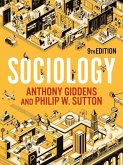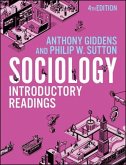Global thinker, public intellectual and world-famous theorist of 'liquid modernity', Zygmunt Bauman (1925-2017) was a scholar who, despite forced migration, built a very successful academic career and, after retirement, became a prolific and popular writer and an intellectual talisman for young people everywhere. He was one of those rare scholars who, grey-haired and in his eighties, had his finger on the pulse of the youth.
This is the first comprehensive biography of Bauman's life and work. Izabela Wagner returns to Bauman's native Poland and recounts his childhood in an assimilated Polish Jewish family and the school experiences shaped by anti-Semitism. Bauman's life trajectory is typical of his generation and social group: the escape from Nazi occupation and Soviet secondary education, communist engagement, enrolment in the Polish Army as a political officer, participation in the WW II and the support for the new political regime in the post-war Poland. Wagner sheds new light on the post-war period and Bauman's activity as a KBW political officer. His eviction in 1953 from the military ranks and his academic career reflect the dynamic context of Poland in 1950s and 1960s. His professional career in Poland was abruptly halted in 1968 by the anti-Semitic purges. Bauman became a refugee again - leaving Poland for Israel, and then settling down in Leeds in the UK in 1971. His work would flourish in Leeds, and after his retirement in 1991 he entered a period of enormous productivity which propelled him onto the international stage as one of the most widely read and influential social thinkers of our time.
Wagner's biography brings out the complex connections between Bauman's life experiences and his work, showing how his trajectory as an 'outsider' forced into exile by the anti-Semitic purges in Poland has shaped his thinking over time. Her careful and thorough account will be the standard biography of Bauman's life and work for years to come.
Hinweis: Dieser Artikel kann nur an eine deutsche Lieferadresse ausgeliefert werden.
This is the first comprehensive biography of Bauman's life and work. Izabela Wagner returns to Bauman's native Poland and recounts his childhood in an assimilated Polish Jewish family and the school experiences shaped by anti-Semitism. Bauman's life trajectory is typical of his generation and social group: the escape from Nazi occupation and Soviet secondary education, communist engagement, enrolment in the Polish Army as a political officer, participation in the WW II and the support for the new political regime in the post-war Poland. Wagner sheds new light on the post-war period and Bauman's activity as a KBW political officer. His eviction in 1953 from the military ranks and his academic career reflect the dynamic context of Poland in 1950s and 1960s. His professional career in Poland was abruptly halted in 1968 by the anti-Semitic purges. Bauman became a refugee again - leaving Poland for Israel, and then settling down in Leeds in the UK in 1971. His work would flourish in Leeds, and after his retirement in 1991 he entered a period of enormous productivity which propelled him onto the international stage as one of the most widely read and influential social thinkers of our time.
Wagner's biography brings out the complex connections between Bauman's life experiences and his work, showing how his trajectory as an 'outsider' forced into exile by the anti-Semitic purges in Poland has shaped his thinking over time. Her careful and thorough account will be the standard biography of Bauman's life and work for years to come.
Hinweis: Dieser Artikel kann nur an eine deutsche Lieferadresse ausgeliefert werden.
"Who was Zygmunt Bauman? The late sociologist, known throughout the world for his path-breaking work on liquid modernity, had a biography. He was a Polish Jew, a soldier, a refugee. He had a whole life before Leeds. Izabela Wagner's great achievement is to recover this other Bauman. This book will change the way we see Bauman, forever."
Peter Beilharz, La Trobe University
"This is a brilliant biography of an extraordinary intellectual. Izabela Wagner, a distinguished sociologist and intellectual historian, has found her subject. Zygmunt Bauman's life embodies a paradigmatic 20th century East-European trajectory. Framed by Hitler's and Stalin's totalitarianisms, it is a story of an attempted assimilation by a bourgeois Jewish family, engagement with Communism by the children's generation, disillusionment and exile. In Bauman's case, of course, this has been accompanied by a lifetime of influential reflection on the conditions and characteristics of modern society. A fascinating read."
Jan T. Gross, Princeton University
"Izabela Wagner's biography of Bauman is impressively erudite, exquisitely researched, and brings its subject vividly to life... an indispensable book."
Australian Book Review
"The lives of sociologists, for the most part, tend not to be wildly eventful. But this was not the case with Bauman. [...] Izabela Wagner's biography of Bauman is impressively erudite, exquisitely researched, and brings its subject vividly to life. [...I]n it, you will find a painstakingly comprehensive account of Bauman's intellectual formation and his daring originality, a kind of voyage around the nature of his sociological enterprise, and a celebration of a truly global public intellectual."
Anthony Elliott, Australian Book Review "excellent... It is rare that one says of an academic book that it is a page-turner, but this book is such a case. Partly, this is due to Bauman's life, which, despite his protestations, was incredibly interesting, but it is also due to Wagner. She brings these events to life not just through her prose, but her skilful deployment of archival resources to enrich this story."
European Journal of Social Theory
Peter Beilharz, La Trobe University
"This is a brilliant biography of an extraordinary intellectual. Izabela Wagner, a distinguished sociologist and intellectual historian, has found her subject. Zygmunt Bauman's life embodies a paradigmatic 20th century East-European trajectory. Framed by Hitler's and Stalin's totalitarianisms, it is a story of an attempted assimilation by a bourgeois Jewish family, engagement with Communism by the children's generation, disillusionment and exile. In Bauman's case, of course, this has been accompanied by a lifetime of influential reflection on the conditions and characteristics of modern society. A fascinating read."
Jan T. Gross, Princeton University
"Izabela Wagner's biography of Bauman is impressively erudite, exquisitely researched, and brings its subject vividly to life... an indispensable book."
Australian Book Review
"The lives of sociologists, for the most part, tend not to be wildly eventful. But this was not the case with Bauman. [...] Izabela Wagner's biography of Bauman is impressively erudite, exquisitely researched, and brings its subject vividly to life. [...I]n it, you will find a painstakingly comprehensive account of Bauman's intellectual formation and his daring originality, a kind of voyage around the nature of his sociological enterprise, and a celebration of a truly global public intellectual."
Anthony Elliott, Australian Book Review "excellent... It is rare that one says of an academic book that it is a page-turner, but this book is such a case. Partly, this is due to Bauman's life, which, despite his protestations, was incredibly interesting, but it is also due to Wagner. She brings these events to life not just through her prose, but her skilful deployment of archival resources to enrich this story."
European Journal of Social Theory








